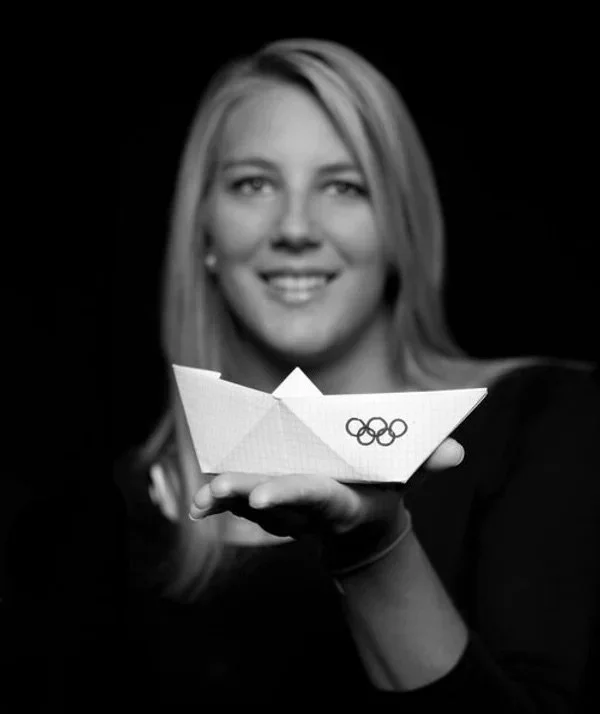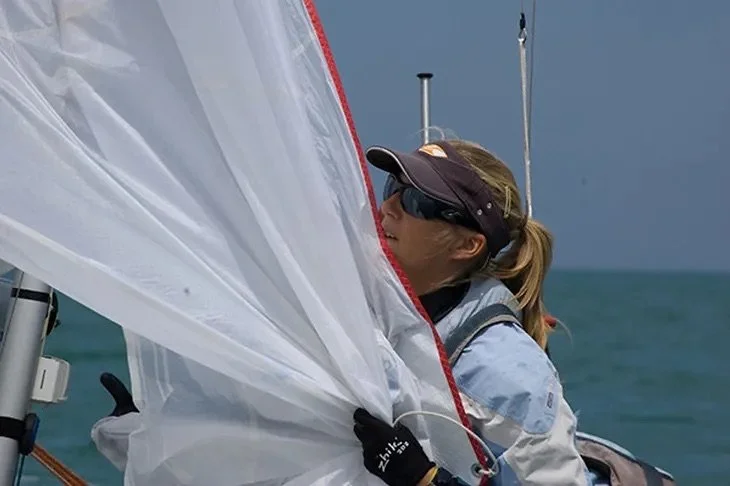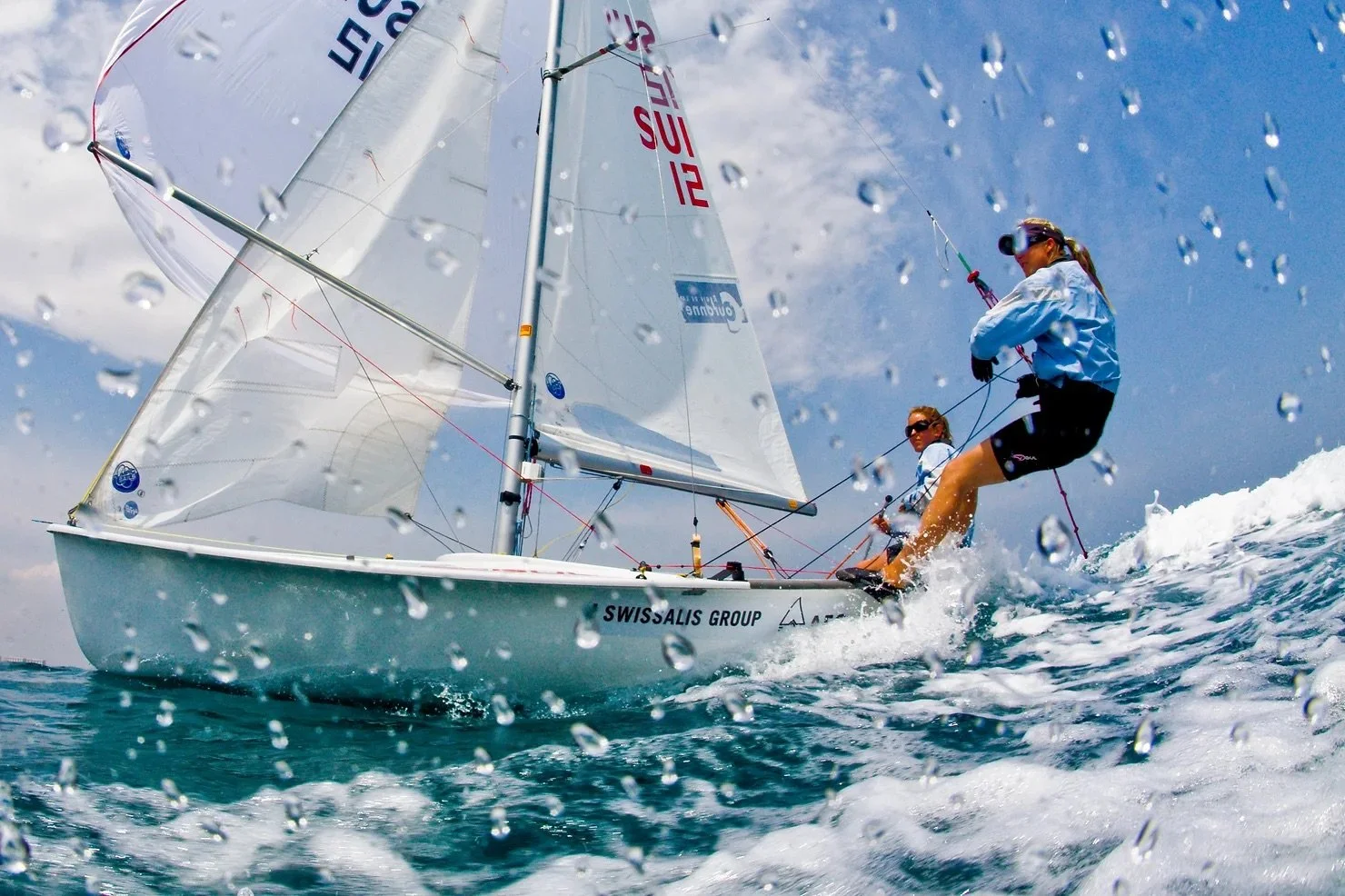Not the Obvious Athlete: Anne-Sophie Thilo’s Story of Grit, Guile and Growth
Introduction
We’re thrilled to share our second ever blog post for Neurodiverse Sport, and what a story it is. Meet Anne-Sophie Thilo—a Swiss sailor who competed in the 2008 Beijing Olympic Games and spent 12 years on the national team. While her performance credentials are impressive, it’s what you don’t see that makes this post so important. Anne-Sophie has High Intellectual Potential (HIP), a form of neurodivergence that brings heightened cognitive processing and insight—alongside significant social and emotional challenges.
She wasn’t the obvious athlete, and yet she made it to the top, navigating the world of elite sport with intelligence, strategy, and quiet resilience. Anne-Sophie was such a pleasure to speak to—insightful, honest, and driven. Her reflections on life in elite sport and the cost of masking her differences for so long struck a real chord. We're honoured she trusted us with her story, and we hope it shines a light on how sport can do better by athletes like her.
From Outsider to Olympian
Anne-Sophie was a member of the Swiss National Sailing Team for 12 years. During that time, she represented Switzerland at the 2008 Beijing Olympic Games and earned medals at multiple Youth and Senior Championships. Her remarkable achievements, however, came alongside a lesser-known facet of her identity: Anne-Sophie has High Intellectual Potential (HIP). She attributes both her success and many of her struggles to this form of neurodivergence.
Anne-Sophie Thilo, Olympian
The Power and Pressure of HIP
HIP has given Anne-Sophie what she describes as a sort of superstrength when it comes to problem-solving, decision-making, and navigation—skills that are invaluable in the sport of sailing. But this heightened intellectual capacity hasn’t come without a cost. For all the cognitive advantages, Anne-Sophie has experienced profound social and emotional difficulties throughout her life.
Anne-Sophie explained that a common reaction she would get from coaches and teammates alike was exasperation at her ‘over-thinking’. She was often told outright to “stop thinking so much,” but this advice just served to frustrate her even more. It not only felt like an impossible task, but if she somehow managed to switch her brain off or slow her thoughts down, she felt like she would lose the one thing that made her great. Yes, understanding and empowering Anne-Sophie as an athlete may have taken a little extra time and effort on others' behalf, but the results would surely have been worth it. It’s likely Anne-Sophie would have felt fewer emotional difficulties, and it’s also likely that she would have been able to better harness her incredible processing skills and contribute to her team more effectively.
‘Odd Behaviour’ and Incredible Strengths
We see this type of appreciation and collaboration a lot outside of the sporting environment today—where businesses now seek to employ people who in the past may have been ostracised for their ‘odd behaviour,’ but who are now sought after for their incredible strengths. Not only are there many recruitment companies seeking to represent these ‘high-functioning’ individuals, but there are also some businesses who will employ no one else! Now, I’m not advocating for neurodivergent-only sport, but some form of understanding and collaboration seems like the most effective way to ensure peak team performance.
Anne-Sophie Thilo, Olympic Sailing
Smart Over Strong
Anne-Sophie admits that as a child, she was “not the kid that anyone would bet on becoming an athlete.” She lacked natural physical talent, but made up for it with grit, determination, and guile. While she was always willing to put in the work, she saw little point in doing things the hard way if a smarter, more efficient route could achieve the same results.
This mindset served her well in many ways. Her ability to identify and solve problems quickly gave her a competitive edge. But in a team sport like sailing, success isn’t just about strategy and execution—it’s also about connection.
Communication Conflict
Teammates aren’t telepathic. Anne-Sophie often struggled to communicate her thoughts and feelings in a way that others could relate to or understand. This either led to her rubbing people up the wrong way or spending enormous amounts of time and energy modifying her communication to fit social expectations.
The tension between her internal logic and the external demands of collaboration often left her feeling isolated or misunderstood. Despite this, she continued to show up, to contribute, and to compete at the highest level.
Anne-Sophie Thilo, Olympic Sailor
Career Reflections
As an athlete, Anne-Sophie felt she was not only misunderstood and unable to speak up, and sometimes gaslit—made out to be the root of the team’s problems. She was told she was “too emotional,” which only served to increase her mental isolation and negative self-talk. Anne-Sophie believes that with the right understanding and support, athletes and other neurodivergent individuals—and particularly those with HIP—do not need to experience such difficulties and would therefore be better enabled to achieve their full potential.
Inspired by her unique sporting experience, Anne-Sophie transitioned to a career at the International Olympic Committee (IOC) and more recently has founded a communications consultancy called EKKUT. Driven by the difficulties she faced as an athlete, Anne-Sophie hopes to use EKKUT to ensure poor communication is not a barrier to success for anyone—athlete or not.
Final Thoughts
Neuroinclusion isn’t just good for teams—it’s transformative for the individuals within them. When difference is normalised, neurodivergent athletes are more likely to feel a genuine sense of belonging. That, in turn, can empower them to ask for support, advocate for their needs, and bring their full selves to sport.
Anne-Sophie’s story is a reminder that the path to high performance isn’t always linear. It’s often shaped by different ways of thinking—and the courage to take a less conventional route.
You can find Anne-Sophie Thilo on LinkedIn and Facebook, or search @AnSoThilo on Instagram and Twitter. To learn more about EKKUT, visit https://ekkut.com/.
Key Takeaways for Neurodivergent Individuals:
Intellectualism Has Athletic Value
→ HIP brings unique advantages in decision-making and strategy, especially in high-pressure environments like elite sport.
You Don’t Need to Fit the Mould
→ There is no one way to be an athlete—emotional depth and intellectual insight are valid strengths.
Smart Effort Is Still Effort
→ Working differently is still working hard—own your style and value.
Key Takeaways for Peers, Supporters, and Parents
Look Beyond the Obvious
→ The quiet, cerebral or unconventional athlete may have untapped brilliance—nurture it.
Emotional Complexity Isn’t a Flaw
→ Sensitivity and strong feelings can be signs of high capability, not weakness.
Encourage Authentic Communication
→ Allow space for neurodivergent people to express themselves on their own terms.
Key Takeaways for Coaches, Leaders, and Organisations
Intellectualism Isn’t the Opposite of Athleticism
→ Some athletes lead with thought, others with feel—great coaching makes room for both.
Create Environments of Psychological Safety
→ Let athletes say when something isn’t working without fear of stigma or punishment.
Design for Inclusion, Not Just Output
→ Team systems should support wellbeing and collaboration, not just medals and rankings.
This blog post was written by Caragh McMurtry. Subheadings were added by the Neurodiverse Sport team to support readability.



